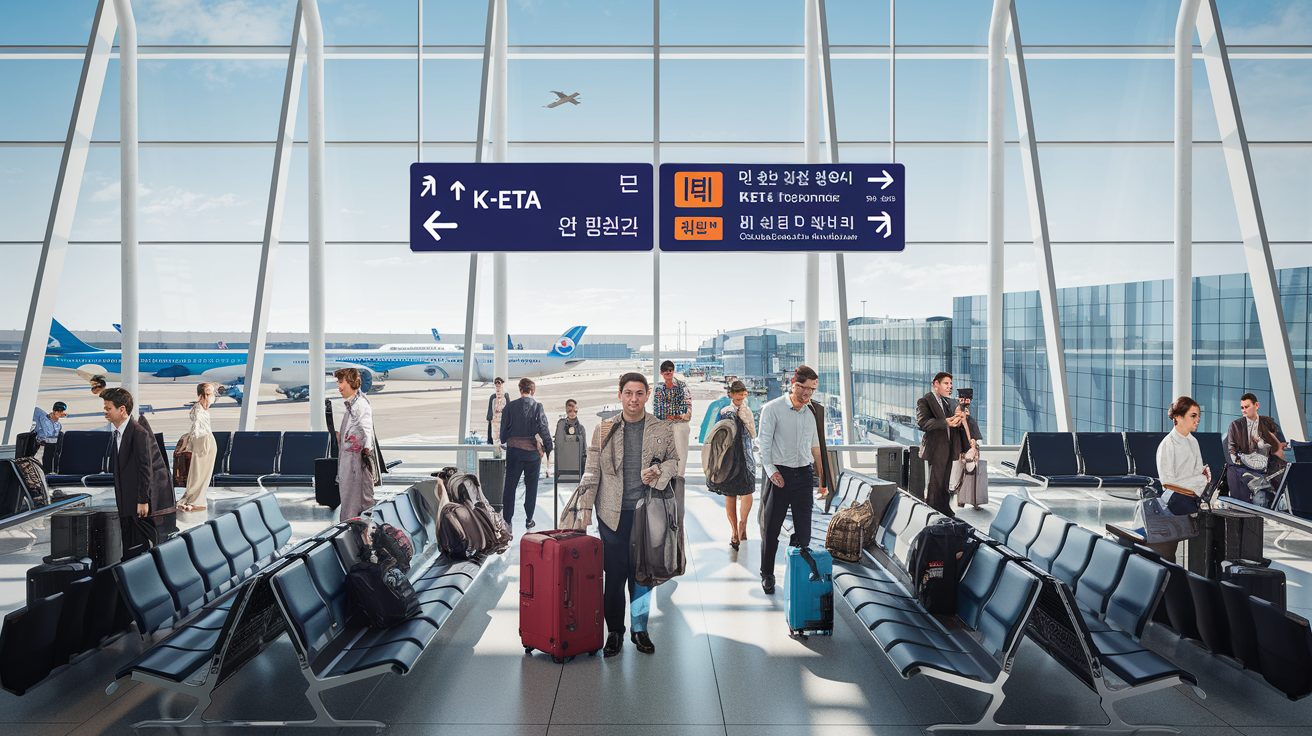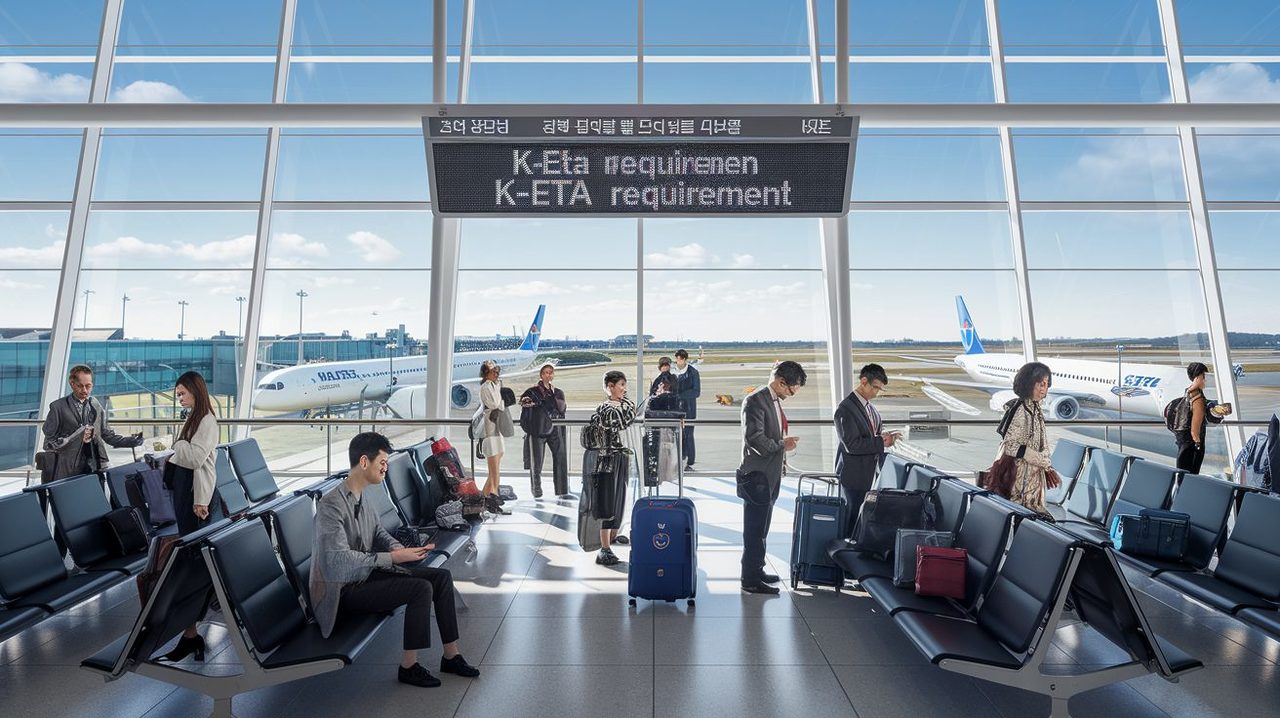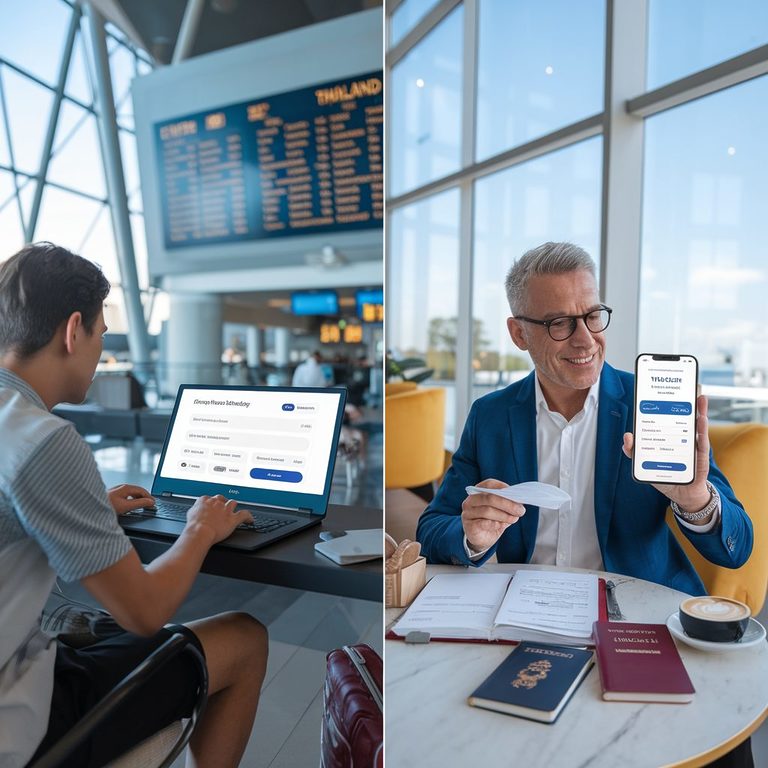Beginning January 1, 2025, South Korea will reinstate the Electronic Travel Authorization (K-ETA) requirement for travelers from 67 countries and territories that are currently exempt. This reintroduction follows a temporary exemption initiated on April 1, 2023, aimed at revitalizing tourism in the aftermath of the pandemic. As international travel resumes, understanding the application process and requirements for K-ETA will be essential for those planning to visit South Korea.
Starting January 1, 2025, South Korea will reinstate the Electronic Travel Authorization (K-ETA) requirement for travelers from 67 countries and territories that are currently exempt. This decision follows a temporary exemption aimed at promoting tourism during the “Visit Korea Year 2023-2024” initiative, which began on April 1, 2023.
Understanding K-ETA
K-ETA, or Korea Electronic Travel Authorization, is an electronic system implemented by South Korea on September 1, 2021. This system allows authorities to pre-screen travelers, enhancing security and streamlining the immigration process at points of entry.
How to Apply for K-ETA
To secure a K-ETA, travelers must complete an online application via the official government portal www.k-eta.go.kr, or through the “K-ETA” mobile application available on both the App Store and Google Play Store. The application requires several details, including an email address, passport information, contact number, intended purpose of stay, accommodation details, occupation, and a valid passport photo.
The K-ETA application fee is KRW 10,300 (approximately 7 €), and submissions must be made at least 72 hours prior to arrival in South Korea. Once granted, the authorization remains valid for three years or until the traveler’s passport expires, whichever occurs first.
Duration of Stay
The allowable length of stay in South Korea depends on the traveler’s nationality, ranging from 30 to 180 days. For instance, citizens from France and various European nations can stay for up to 90 days without a visa.
Exemptions to K-ETA
Certain categories of travelers are exempt from K-ETA obligations. This includes individuals aged 17 and under, as well as those over 65. Moreover, valid visa holders, individuals holding a South Korean residence permit, members of the US Armed Forces stationed in South Korea (USFK), and diplomatic passport holders who have received exemptions from relevant authorities are also excluded from this requirement.
Nationalities Affected
In total, 112 countries and territories will be impacted by the K-ETA reinstatement in 2025. This list encompasses nations from various continents, such as:
South Africa, Albania, Germany, Andorra, Antigua and Barbuda, Saudi Arabia, Argentina, Australia, Austria, Bahamas, Bahrain, Barbados, Belgium, Bosnia Herzegovina, Botswana, Brazil, Brunei, Bulgaria, Canada, Chile, Cyprus, Colombia, Costa Rica, Croatia, Denmark, Dominica, United Arab Emirates, Ecuador, Spain, Estonia, Eswatini, United States, Fiji, Finland, France, Greece, Grenada, Guam, Guatemala, Guyana, Haiti, Honduras, Hong Kong, Hungary, Ireland, Iceland, Israel, Italy, Jamaica, Japan, Kazakhstan, Kiribati, Kuwait, Latvia, Liechtenstein, Lithuania, Luxembourg, Macao, Malaysia, Malta, Morocco, Mexico, Micronesia, Monaco, Montenegro, Mauritius, Nauru, Nicaragua, Norway, New Caledonia, New Zealand, Oman, Panama, Palau, Paraguay, Peru, Netherlands, Poland, Portugal, Qatar, Czech Republic, Dominican Republic, Romania, Russia, Saint Kitts and Nevis, San Marino, Saint Vincent and the Grenadines, Saint Lucia, Samoa, El Salvador, Seychelles, Singapore, Slovakia, Slovenia, Sweden, Switzerland, Suriname, Thailand, Taiwan, Tonga, Tunisia, Turkey, Tuvalu, United Kingdom, Uruguay, Vatican City, Venezuela.
Travelers planning to visit South Korea after December 31, 2024, without an approved K-ETA or a valid visa risk being denied boarding at check-in or entry into the country; thus, timely application for K-ETA is essential.
Purpose of Stay with K-ETA
K-ETA covers various holiday categories, including individual or group tourism, family visits, business, medical treatment, conferences, events, and sporting activities. A new category has been introduced since March 2024: incentive tourism, aimed at rewarding employees through tourism and meetings, funded by foreign companies.
For more information or application assistance, visit Travel Red Tape.
Key Aspects of K-ETA Requirement
- Effective Date: January 1, 2025
- Countries Affected: 67 currently exempt nations
- Application Cost: KRW 10,300 (approx. 7 €)
- Validity: 3 years or until passport expiry
- Application Platform: Online portal or mobile app
- Advance Notice: Apply at least 72 hours before arrival
- Exemptions: Aged 17 and under, 65 and over, valid visa holders
- Duration of Stay: Up to 90 days for certain nationalities
- Authorized Purposes: Tourism, business, medical treatments, events

Beginning January 1, 2025, South Korea will reintroduce the Korea Electronic Travel Authorization (K-ETA) for travelers from 67 countries previously exempted. This requirement follows a temporary exemption initiated on April 1, 2023, to encourage tourism post-pandemic. To obtain a K-ETA, travelers must apply online at the government portal, providing essential personal information and a passport photo. The cost is KRW 10,300, and applications must be completed at least 72 hours before arrival. The K-ETA will be valid for three years, or until the traveler’s passport expires, with allowed stays varying by nationality, from 30 to 180 days. Certain individuals, such as minors and seniors, along with holders of specific visas or permits, are exempt from this requirement. Travelers must ensure they secure their K-ETA to avoid being denied boarding or entry.

Hello! I’m Elisa, a 45-year-old travel companion with a passion for exploring new places and cultures. With years of travel experience under my belt, I thrive on creating memorable journeys for my clients. Let’s embark on an adventure together!





